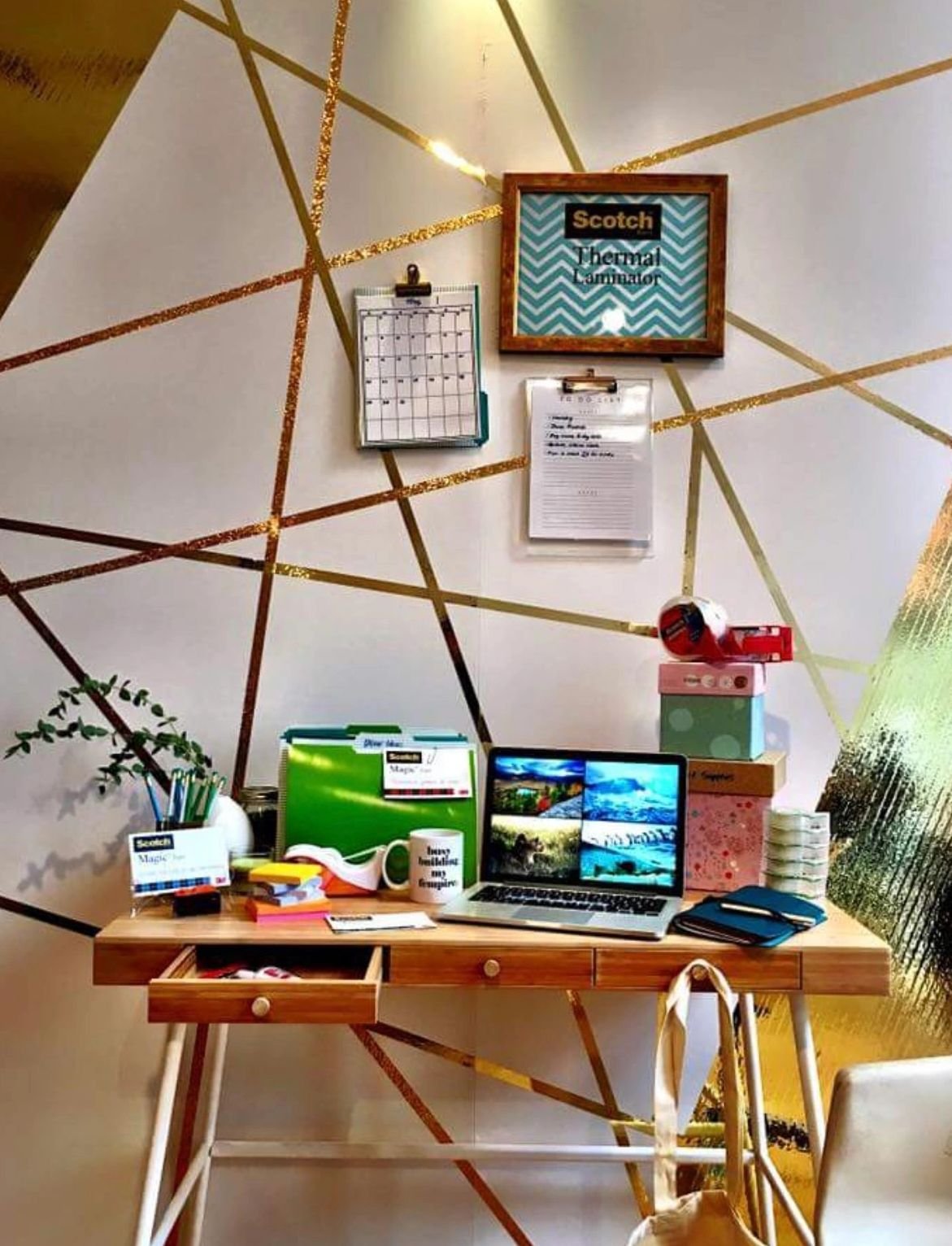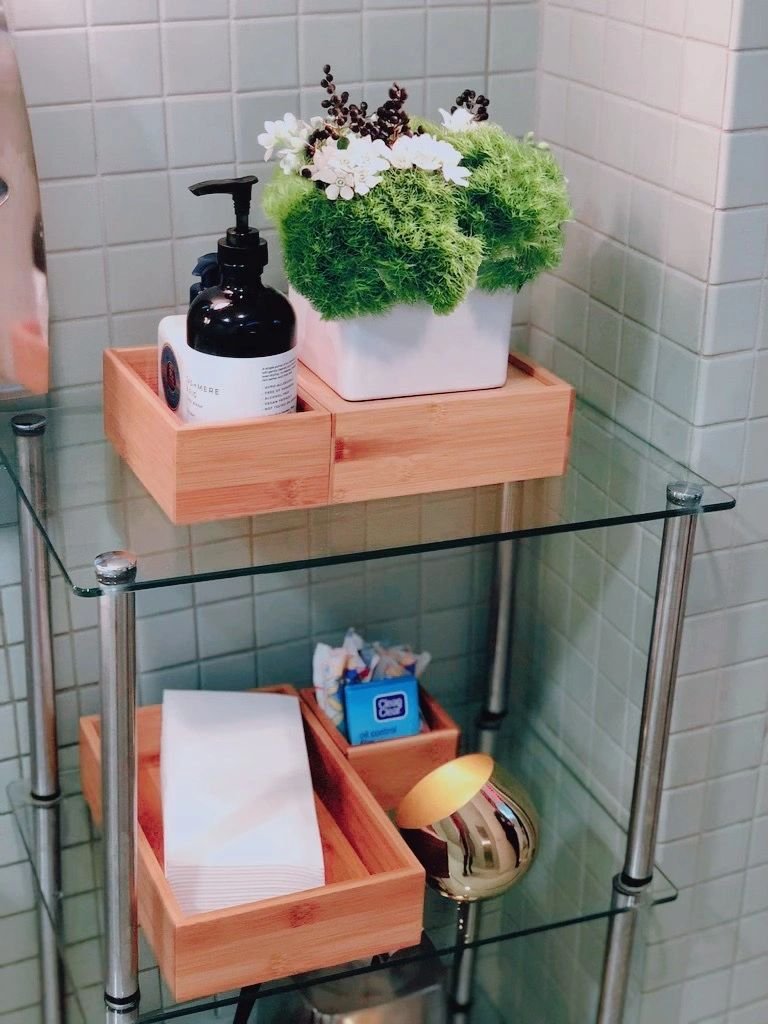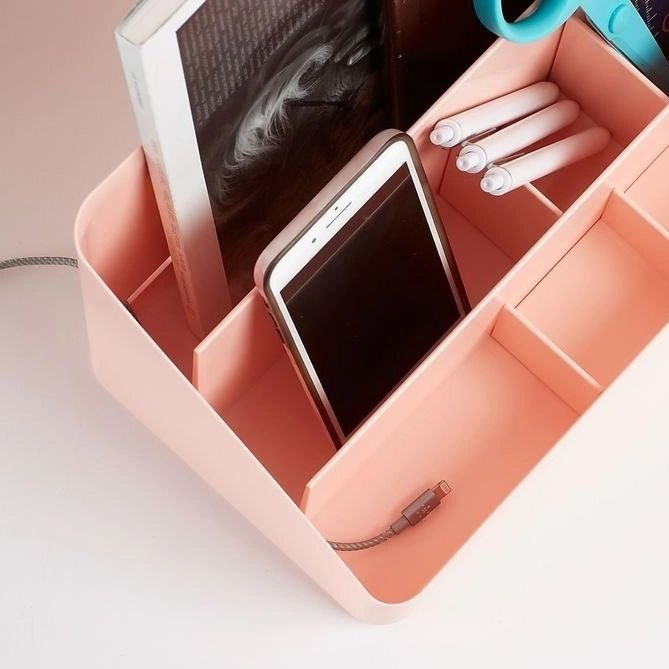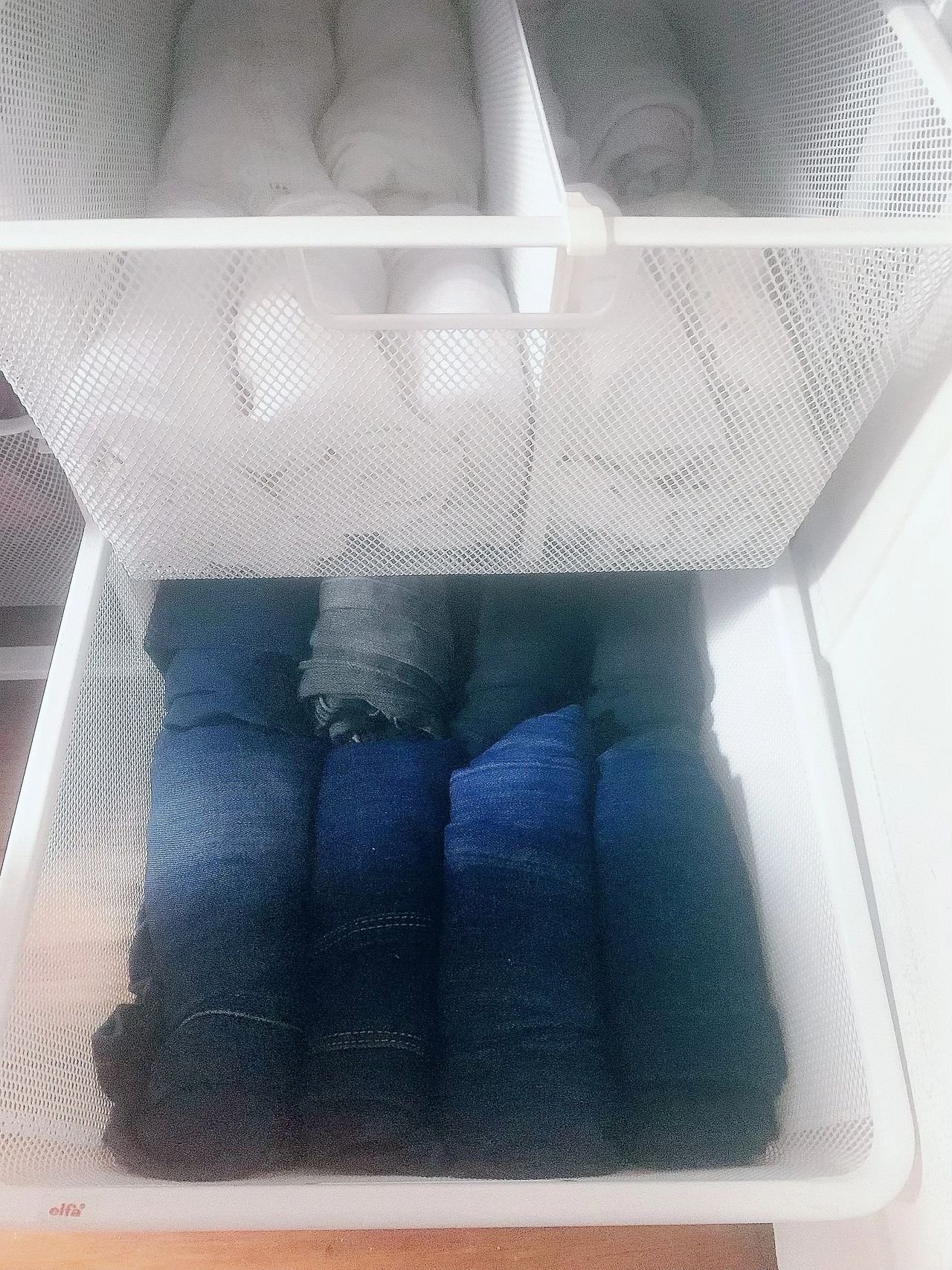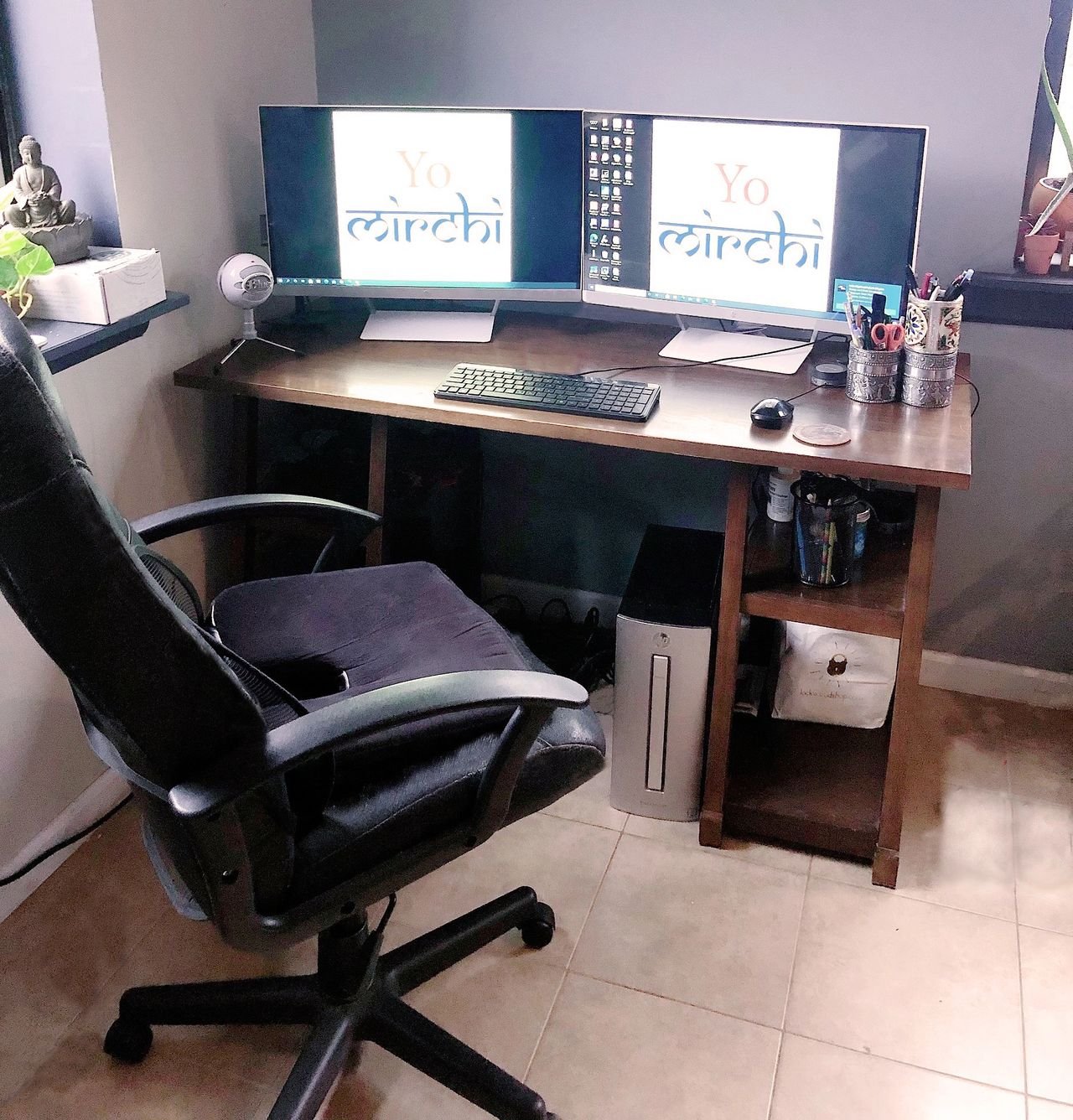Clear Away Inner Chaos Through Outer Order
"Clutter is the physical manifestation of unmade decisions fueled by procrastination" - Christina Scalise
Clutter creates constant movement within our brain; it is a visual noise that signals to us that our work is never done. It depletes our drive as we become overwhelmed with our to-dos, leading to mental and physical burnout, with a defeatist mindset soon to follow. And before we know it, we are in a rut.
Organizing is a lifestyle and a mindset that anyone can adopt. Organization isn’t limited to pantries, closets, and other rooms in our house or office. It extends to hobbies, travel and electronics. It is a practice that helps contain the chaos of our life and all the contents that come with it.
Clutter is not the idea to own less. It’s ok to own things. Be careful not to conflate minimalism with organization - minimalism is to live with less, while clutter-free is to live in a tidy, well-ordered space. Organization is an efficient and orderly arrangement of your possessions and tasks.
"Don't put off until tomorrow what you can do today" - Benjamin Franklin
Clutter is a gradual build-up that happens over time - Have you ever walked into your home extremely exhausted from the day and placed your bags down, intending to put them away later, and later never comes? Are there nights when you don’t have the energy to clean the dishes before going to bed and wake up to a filled sink? This is not to cause embarrassment or guilt. We’ve all been there. This is about incorporating small practices to help bring order into our lives where we can. Organization is about creating a lifestyle, so it becomes a way of living and helps you stay efficient and orderly, especially when you are on the go or just too tired.
An unwritten rule in the event world is no one is above any task that includes picking up a wrapper off the floor. If everyone walks over it thinking the next person will get it, it will remain on the ground. As soon as you notice something out of place, take that moment to put it back. With so many distractions, we will quickly forget about what we saw, and one item will turn to two, then three, and before you know it, it looks like a tornado swept through your home.
One way to avoid the build-up is to have a home for each item that contains the entire category. In doing so, you will automatically return those items to their designated home and avoid them sitting on the floor and procrastinating to put them away.
End each day, finish that day's task, so the next day is a clean, fresh start. When you wake up to a sink filled with dirty dishes, you will notice a slower pep in your step since you can't start the new day. You literally are starting your day with yesterday's mess. Each day should begin new, which means cleaning up all loose ends before finishing your day. Notice your energy level when you wake up to a clean and tidy home versus a disorderly mess. Does it create a more productive and motivated start to your day?
The basic theory of Feng Shui is that your environment affects how you feel, which is through order. If our spaces and mental state mirror each other, then clutter will create a continual state of chaos in our lives, stealing the body's energy to fuel ceaseless spinning within the mind. As you slowly start to clear away the clutter, the noise in your mind will quiet as you regain focus, allowing the energy to recirculate through your body, causing a revitalized and motivated spirit. The next time you are clearing a mess, notice if you have more energy at the end than when you began.
"The reason why clutter clearing is effective is that while you are putting your external world in order, there are corresponding changes going on internally too." - Karen Kingston
Clutter...
Bombards and overstimulates our system (visual and tactile), causing our senses to work overtime on stimuli that aren't necessary or important
Draws our attention away from what our focus should be on
Continuously signals to our brain that our work is never done, making it challenging to relax physically and mentally
Overwhelms us with this constant reminder to our brains that we still have a huge to-do list
Causes anxiety as we are overcome with where to begin and sorting piles
Mental fatigue due to the extraneous activity surrounding us leads to a defeatist, unproductive, and unmotivated mindset
Causes feelings of guilt and embarrassment, particularly when someone drops by unexpectedly
Clutter inhibits creativity by invading the open spaces that allow most to think, brainstorm, and problem solve
Frustrates us by preventing us from locating what we need quickly
Decreasing clutter improves productivity
Create a flow - Steps to Declutter
"Simplifying your space doesn't need to happen in a day. Set a goal. Take it step by step. You'll gain momentum." - The Unclutter Angel
Decluttering can be overwhelming, which fuels procrastination. Don’t try to do it all at once; start small - one drawer, one closet, or one corner of a room. Once you begin, you will notice your energy levels increase and clarity in your mental state. When you focus in one area, it will enable you to find your groove, advancing you to the next, and before you know it you are moving onto the next room.
An advantage to starting on a small scale will allow you to take the time to examine each item and determine if it is a need or something to toss. It is also an opportunity to create specific homes that contain each object, so you will never lose track of it and always be inclined to put it back in place. The latter is the key to avoiding future clutter.
Clutter's Impact on the Brain
"A place for everything, and everything in its place." - Mrs. Beeton
I recently started working with a new client who has a designated office space in his apartment yet is more inclined to work in his living room. With each question I'd ask, it slowly became apparent that the cumbersome set-up and disorganization produced a low vibrational energy. His workspace was comprised of multiple tables that held two large monitors and his essential office supplies. He admitted to replacing his larger desk with these smaller tables to make the space feel more open, but it did the opposite. Luckily, it was stored in his attic. Once we brought it down and replaced the small furniture pieces with one solid structure, the energy opened and cleared. Even though the footprint remained the same, having fewer items removed the superfluous visual noise resulted in less mental clutter.
His decision to use smaller furniture pieces to create an open space isn't uncommon. People tend to use lighter items to avoid a "bulky" feeling when working in tighter quarters, but it can actually do the opposite. Since he couldn't downsize his office essentials, he needed to create adequate space to hold all the items. His thought was to add smaller tables to accommodate his supplies, but the more you add, the more visual noise accumulates. When you go to work, you need a clear open space, so your mind has room to let new thoughts and solutions enter, but all he was seeing was a thousand table legs holding up multiple tabletops with barely any extra space for new ideas to be acquired.
When we replaced the two smaller tables with the wood desk, it instantly felt less cluttered and more spacious. The desk now stood firm and grounded the space inviting productivity. Before, the monitors felt overbearing as they took over the two small tables but implementing the correct proportions eradicated the cramped and unwelcoming energy. In addition to the proportions, the desk provided nicely organized storage underneath, allowing each office supply to have an easily accessible home and freeing up the tabletop. This space was able to breathe and created an invitation to work.
"When we throw out the physical clutter, we clear our minds. When we throw out the mental clutter, we clear our souls." - Gail Blanke

